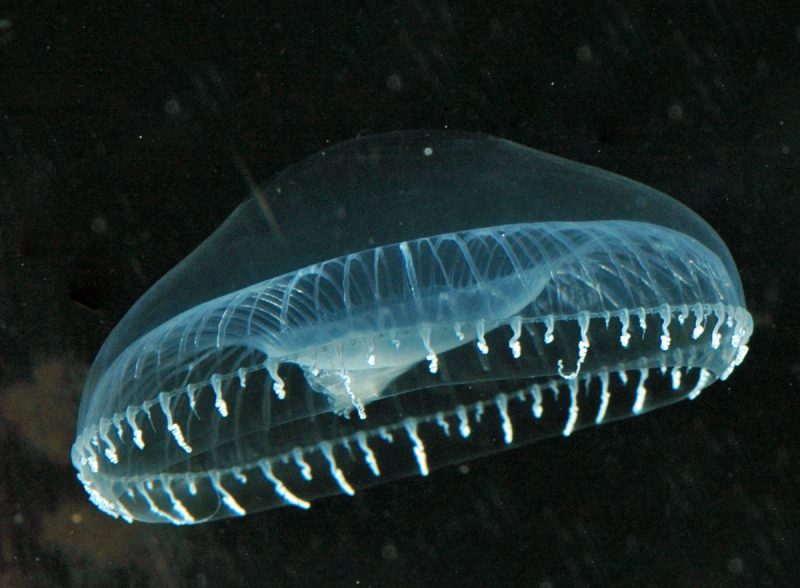
Stories

Basic research on bioluminescence in the jellyfish Aequorea victoria has led to new techniques for tracking neural circuits, cancer cells and other biological processes. (Photo: Sierra Blakely / Wikimedia)
Nautilus: Stories of Curiosity, Luck and the Power of Science
Revolutionary changes in technology and human health have stemmed from the curiosity of scientists studying such organisms as corals, jellyfish and bacteria. The benefits of these discoveries have taken decades to come to fruition, as chronicled in a series of articles in “Luck,” the January issue of Nautilus magazine.
The articles were commissioned by the Science Philanthropy Alliance, a community of funders working to strengthen philanthropic support for basic, curiosity-driven science, as part of its Science to Society series. These five stories illustrate how the efforts of many scientists from different disciplines can transform fundamental knowledge into lifesaving treatments and new scientific capabilities.
In many cases, the impacts of this knowledge are still unfolding. For instance, the article “Why Do Jellyfish Glow?” begins in the 1960s, when biochemist Osamu Shimomura was struggling to isolate light-producing molecules from the jellyfish Aequorea victoria, and ends with the latest applications of green fluorescent protein—tracking the processes of neurodegenerative diseases, cancer and viruses. The author, Emily Willingham, sums up this remarkable case of luck in science: “…the original question that got us to GFP wasn’t, ‘What can it do for us?’ Instead, our human curiosity led us to ask, simply, ‘Why does it glow?’ Now, the molecule that answered that basic question helps us illuminate the secrets of human health.”
Other articles in the series recount how sea creatures have helped to reveal the mechanics of human memory; how the structure of coral has informed the repair of human bone; and how bacterial enzymes, including those that slice and copy DNA, have formed the foundations of biotechnology.
The Rita Allen Foundation is an associate member of the Science Philanthropy Alliance, whose mission is to increase private funding for basic science research. It does this by providing advice and learning opportunities for individual philanthropists and foundation staffs on how to support basic research most effectively.